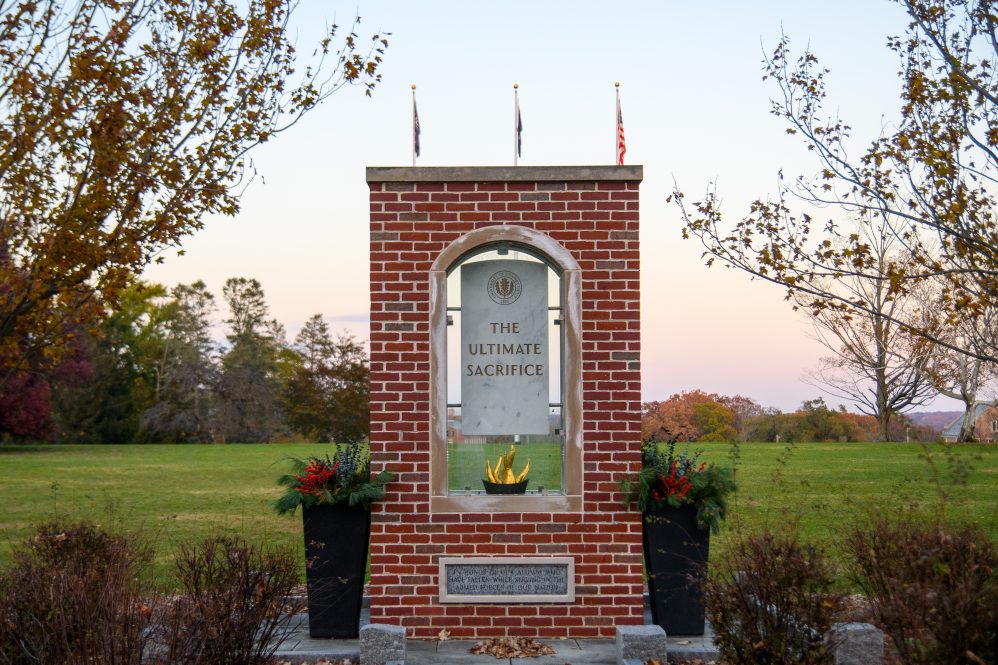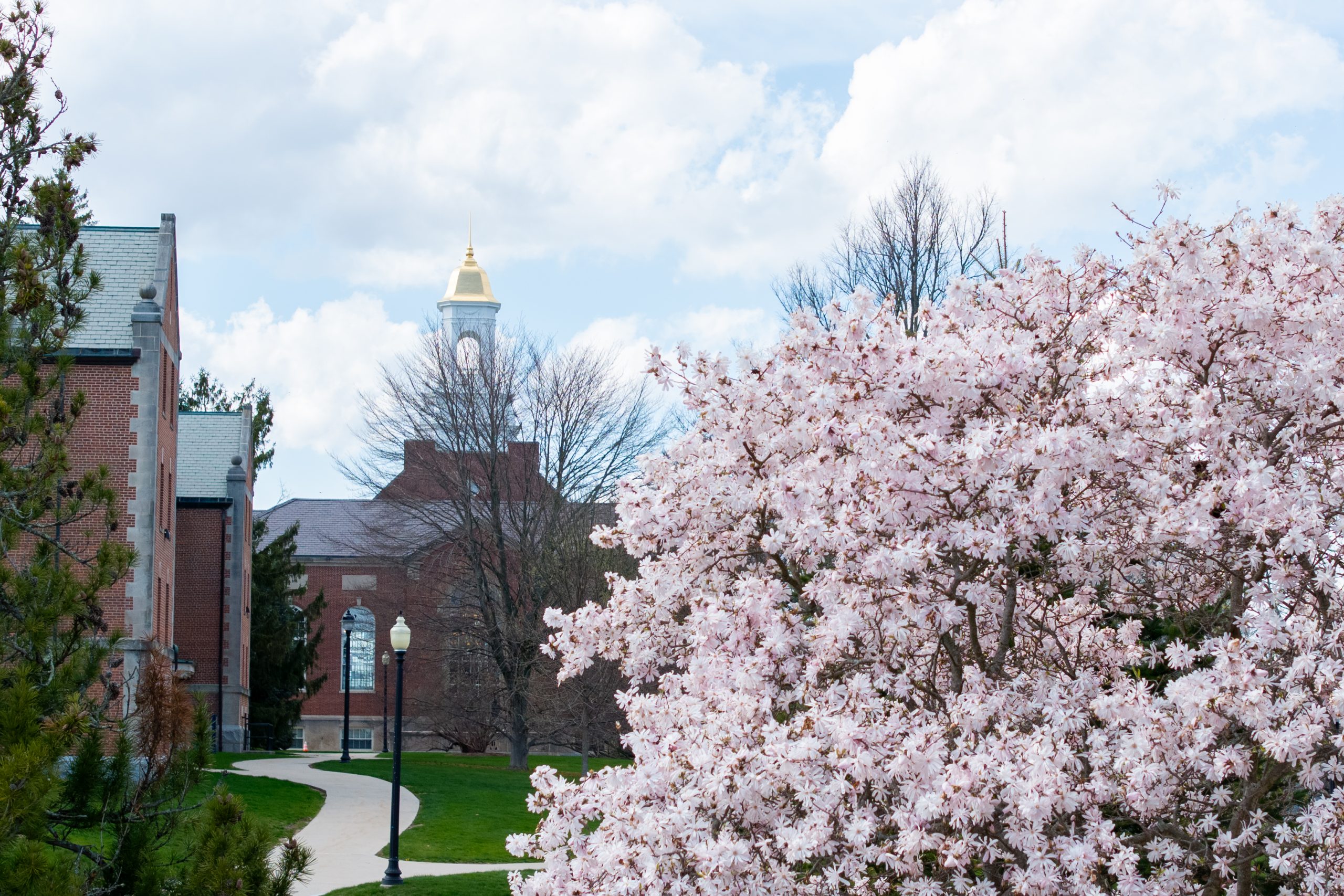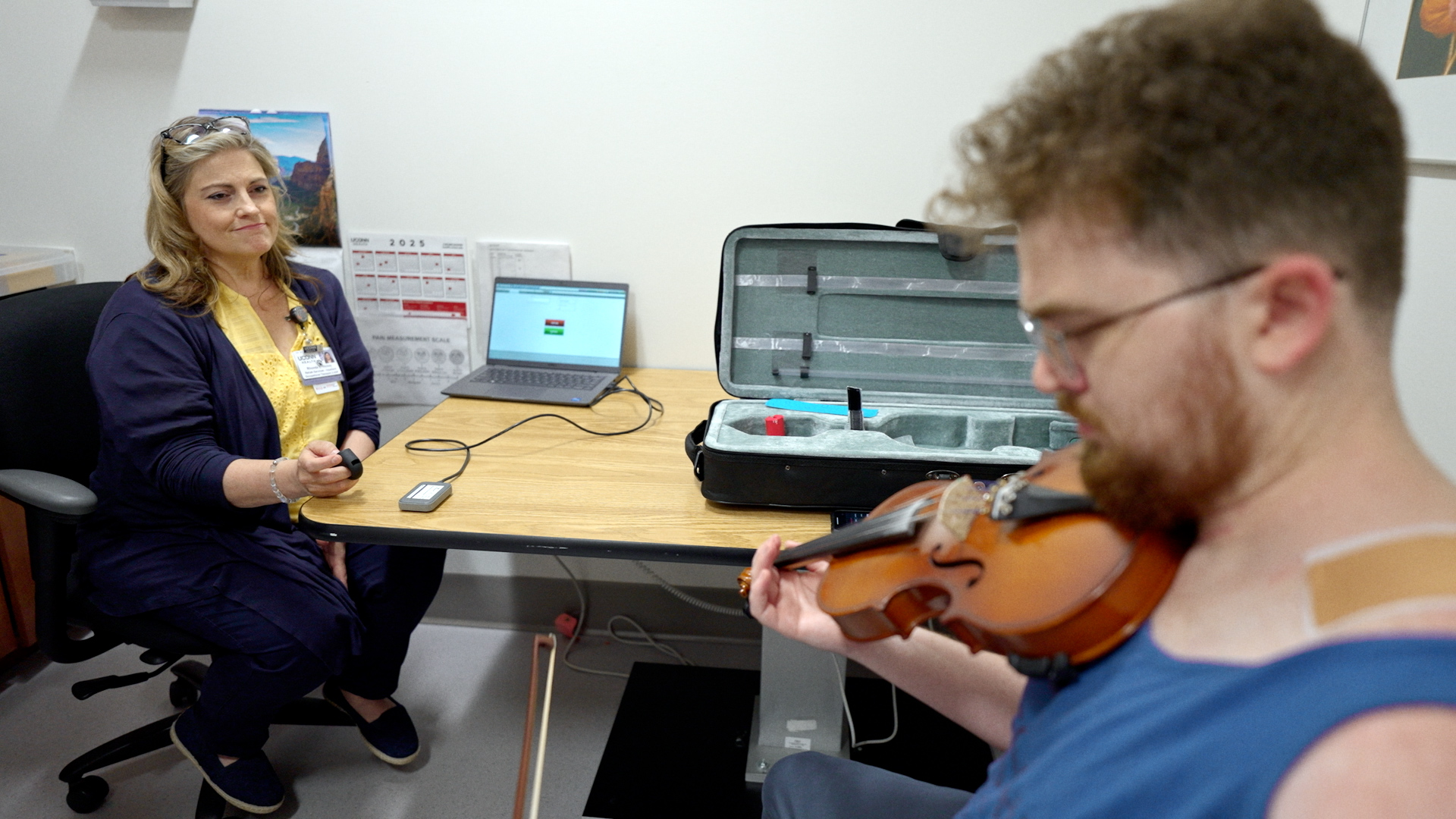Inevitably, the clouds seemed to open up during ROTC field training exercises – the first drops not so bad, but then a downpour revealing that paper and ink are unusable in the field as, one by one, pages of carefully written plans disintegrated in the weather.
There was no way then-UConn Army ROTC cadet Francis J. “Fran” Evon Jr. or anyone else was able to save those circa-late-1980s documents that dictated what, where, and how he and other cadre leaders would move their company from point A to point B.
Defaulting to tactics borrowed from UConn’s Ranger Club, Evon ’89 (BUS) says they streamlined those dozens of pages to only the few paragraphs they could memorize.
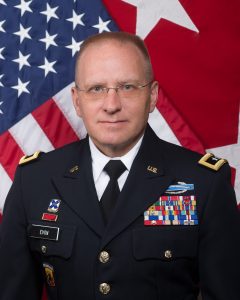
“We still talk about how Jerry Lukowski, who’s a lot taller than I am, put a poncho over himself, spread it out as wide as he could, and the rest of us huddled under it, trying to stay dry,” Evon says.
Teamwork.
“That’s really the crux of the ROTC program,” says Evon. “There weren’t any individuals that day. It was all team effort and striving toward a common goal.”
Even today, some 35 years later, now Maj. Gen. Evon, adjutant general of the Connecticut National Guard – that’s right, two stars and head of the state’s military might – endeavors to craft a sense of belonging, commonality, and teamwork among the ranks.
‘The Army gave me discipline and taught me values’
Back in 1985, the Army recruiting station was on the other side of the fence from Naugatuck High School, from which Evon graduated that June. He was “eight of eight” friends, he says, to cross that fence and sign the dotted line, interested mostly in the tuition assistance the military offers.
His father, Francis, was a Vietnam War vet, quiet about the time he and his own brothers spent overseas in the late 1960s and early 1970s yet determined to instill a sense of patriotism in his four children.
Initially, only about a month before starting at UConn, Evon admits that as the oldest of those four children, he was focused on how to pay for school and committed to the Army National Guard, knowing that as a rising sophomore the following summer he’d be away at basic and then Advanced Individual Training (AIT), where he’d learn to become an anti-tank gunner.
“My freshman year was a time to figure things out and understand what it meant to be away from home unsupervised,” Evon says. “I could have taken a bunch of different paths back in the mid-1980s, but the Army gave me discipline and taught me values.”
In September 1986, the sidewalk from Towers was well-worn even then, as students walked to class in the morning and back to their dorms in the evening.
Walking ahead of Evon – who was fresh from a summer of training in Georgia, with a tight haircut and drill sergeant orders not to get tattoos during leave still echoing in his head – was someone his own age dressed in the classic battle dress uniform, yet sporting … a rattail.
It was the style back then, but definitely not allowed in uniform for military members.
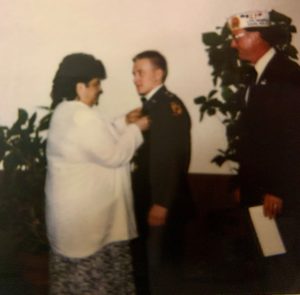
“That was my introduction to ROTC,” Evon says. “I’ll never forget meeting this kid. He ended up becoming an infantry officer, went on active duty after he graduated. But when we met, he talked to me about this ROTC hangar, in those days it was back up on the hill, and I made my way there and met with the lieutenant colonel.”
His military science instructors were Vietnam-era like his dad, and his classmates included students like Lukowski, the cadet who shielded the team from the rain and went on to become a brigadier general, retiring as head of the Joint Staff of the Connecticut Army National Guard, and Ralph F. Hedenberg ’89 (CLAS), brigadier general and assistant adjutant general for the Connecticut Army National Guard.
They’re people, Evon says, who, even before commissioning as second lieutenants together, helped shape him and his future – alongside the person living directly below him in Trumbull House that sophomore year, the woman who eventually became his wife, Laura (Solano) Evon ’90 (BUS).
He promised her that after 20 years in the Army National Guard – 240 monthly drill weekends and 40 weeks of training camp in the summer – he’d retire. Then, he says, Sept. 11 happened.
Cultivating teamwork and ‘selfless service’
“Sept. 11 was defining for the reserve component of the National Guard,” Evon says. “It transformed us from a strategic reserve to the combat operational reserve of the military.”
Evon was assigned to a unit in New London in 2001, which staged equipment at Sherwood Island State Park in Westport following the collapse of the twin towers. Patriotism was high, he says, and he wanted to find a way to make the Guard a full-time priority, leaving behind a civilian career in industrial sales and, yes, breaking his promise to Laura.
Progressively, he rose through the ranks as a member of the state’s operational team, deploying to Afghanistan in 2009 where his fellow battalion commanders were military careerists who graduated from West Point and colonels who would become Army four-star generals.
“I’m the guy who doesn’t belong,” he jokes of those experiences. “I could never have imagined my professional career would have gone in this direction, but it’s been a great opportunity. I never thought I’d be working in state service, never mind for a series of governors.”
One of his biggest goals now is increasing the size of the state’s Army and Air National Guard, he says.
The propensity to join the military is down nationally, he acknowledges, although statistics show 61% of young adults 18 to 24 years old nonetheless look favorably on it. Evon says he and others on his team continually reassess how they might attract interest from members of Gen Z.
“We’re trying to tap into this sense of belonging. For those coming from a single-parent household, those who’ve felt isolated since the pandemic, we have a place for you,” he says. “There’s a pathway to citizenship for not only those who join, but also their families. All these things build diversity in our formations, and we’re proud of the fact that our ranks are on par with the demographics of the state.”
Members serve one weekend a month and two weeks in the summer, while going home to their families and working in the communities in which they live, mingling with neighbors, attending children’s activities, and rolling out the bins on trash day.
Because its members are fanned out and work in every civilian industry around Connecticut, uniquely, the Guard touches every corner.
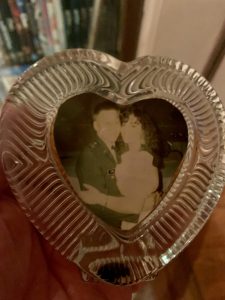
Evon describes members’ mission as “selfless service” – whether serving overseas or when they participate in the Special Olympics Torch Run, or work with high school students during the World Affairs Council of Connecticut Model United Nations program, or entertain a crowd gathered to hear the band play in the park on a warm summer night, or build hospital overflow units in empty parking lots, like they did during COVID.
His own “selfless service” comes in partly when he walks the hallways of the State Armory in Hartford whenever the ASVAB, Armed Services Vocational Aptitude Battery, is being administered. That’s a test in which takers are scored on their skills and matched with a vocation that mirrors their abilities – albeit not necessarily their desires.
“I saw this kid a couple weeks ago pacing back and forth, really nervous about the test. He wants to be a truck driver. So, a couple of us talked to him and settled him down. Then, I met up with him after the test and he thought he did pretty well,” Evon recounts, tapping on a sticky note attached to his desk. “I have his name right here, so I keep looking at it. Every day we get a new members report, and I’m watching to see when he’s officially a member of the team.”
That concept of teamwork is something Evon, who’ll celebrate 40 years of service in August 2025, repeats in conversation when reflecting on his career and time at UConn. It’s something cultivated under that poncho spread wide over him on a rainy day.
“Our members raised their right hand to be part of something larger than themselves,” he says, “and, honestly, that’s a beautiful thing.”
